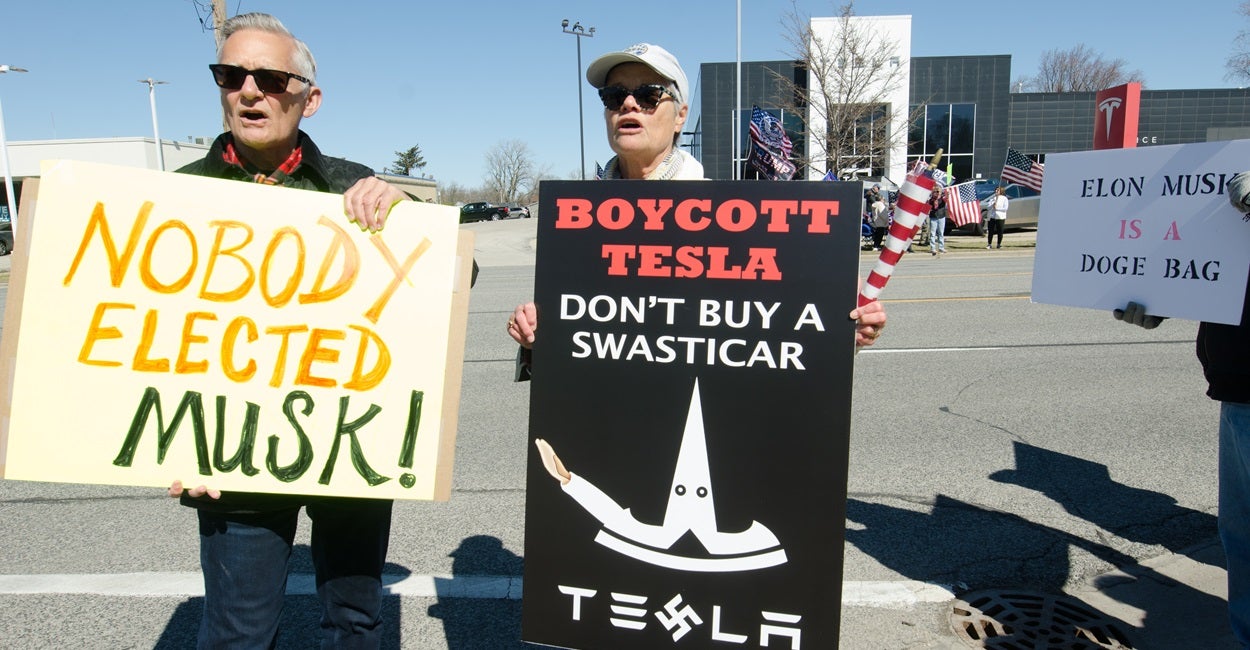Marvel’s Echo is a Short Yet Surprising New Edition to the MCU Canon
With its milestone tenth endeavor into television, it would appear that the stakes in a series such as “Echo” would be higher. Perhaps it would be backed by a classic end-of-the-world scenario, packed with heroes we’re familiar with bouncing in-and-out of various scenes. Tying itself into the knots of other shows and even films would make for a more impressive feat perhaps, but the singularity of “Echo” actually works in the show's favor. The series follows Maya Lopez (a magnetic Alaqua Cox), whose introduction as the Tracksuit Mafia’s boss in “Hawkeye” was impressive albeit brief. As in the previous series, we know that Hawkeye killed her father (played by an underused Zahn McClarnon), though it was revealed to her that Wilson Fisk (Vincent D'Onofrio) actually orchestrated the hit. The series ended with Maya shooting Fisk offscreen, and within the first trailer for “Echo” it was revealed that he indeed survived the shooting, despite losing an eye. In the present, Maya returns to her hometown, where her appearance is a point of contention for her long forgotten extended family. Her return is marred by a galley of Fisk’s employees, who tail her every move and put her and her family in grave danger. Her place in the MCU is refreshed for the audience in the form of unnecessarily rehashed flashbacks, whose place in the show are edited in a frankly burdensome way. It points to the central point of contention this show suffers from: Its place in the MCU. Despite this, they do act as a way for the creatives behind the series to showcase the seeds planted which unfurl into Maya’s thrill for vengeance. The ghosts in her life haunt her and stifle her path to healing, a theme that is present throughout. “You’re filled with rage … it makes you blind,” is what Hawkeye (Jeremy Renner) said to her during one of her first appearances, and Maya still struggles with this in her own series. Along with her grief and anger, the introduction of a different kind of power that Maya will soon inherit becomes another thing to juggle. It’s a power that when its first introduced seems like it may blow up the show's well-crafted smallness, yet instead it surprisingly enhances it. What the first three episodes of “Echo” are concerned with is the idea of mythologies, and stories that are passed down as a means to not only force us to confront where one comes from, but also to warn us of the mistakes our ancestors made in the past. At the beginning of each episode, we are transported back in time to watch a woman from Maya’s long line of ancestors inherit a fantastical gift that allows them to overcome their strife. The sound work present in these flashbacks, and every action scene they’re followed by immerses you not only in the story but Maya's world as a hearing-impaired hero as well. The silences give us an in-depth look into Maya's sphere, and the jolting sounds that strike back into place for the audience snap the audience back into this harsh world she was forced into as a child. The camera often holds on Maya’s face as she struggles with an opponent, sound evaporating from the scene except for her rapidly beating heart, then, with the crack of the breaking neck of her opponent, the sound around her quickly trickles back in. Each fight scene is wholly dynamic and is a fantastic change from the grueling CGI-filled mess found in “Secret Invasion.” Along with these heightened action scenes, “Echo” is supported by a cast that makes the series feel authentic. From legends like Tantoo Cardinal and Graham Greene to the always magnetic William Belleau (who appears briefly in episode 3) each actor adds gravity to the overall story. They all have chemistry with their scene partners, making it unlike many of the other MCU shows, where side characters have no personality or actors are blatantly phoning it in. Here, it is clear everyone on screen and off cares about the work they’re doing, invested in the story “Echo” is trying to tell. While it succeeds as one of the best MCU endeavors in a while, I can’t help but wish “Echo” was longer. At only five episodes, it feels unfortunately stifled in its themes and plot, which at times operate at a breakneck pace. This pace wouldn’t necessarily be a problem if this were a 10-episode miniseries, but with that length halved, it feels as if we spend more time setting things in motion rather than actually witnessing events unfold. Although it is more engaging than its peers, “Echo” often feels like it's unraveling within itself, and before our eyes, sometimes becoming a mess of threads that continue to become tangled as the episodes go on. Still, it's quite easy to get sucked into this world, despite Maya being surrounded by unfamiliar characters. Something here has clicked. Despite its truncated length, it's as if the heart that has been sucked out of the post-"Avengers: Endgame" MCU has slowly trickled back into the bones of a franchise trying to rebuild itself anew. "Echo" is on Disney+ now.


With its milestone tenth endeavor into television, it would appear that the stakes in a series such as “Echo” would be higher. Perhaps it would be backed by a classic end-of-the-world scenario, packed with heroes we’re familiar with bouncing in-and-out of various scenes. Tying itself into the knots of other shows and even films would make for a more impressive feat perhaps, but the singularity of “Echo” actually works in the show's favor.
The series follows Maya Lopez (a magnetic Alaqua Cox), whose introduction as the Tracksuit Mafia’s boss in “Hawkeye” was impressive albeit brief. As in the previous series, we know that Hawkeye killed her father (played by an underused Zahn McClarnon), though it was revealed to her that Wilson Fisk (Vincent D'Onofrio) actually orchestrated the hit. The series ended with Maya shooting Fisk offscreen, and within the first trailer for “Echo” it was revealed that he indeed survived the shooting, despite losing an eye. In the present, Maya returns to her hometown, where her appearance is a point of contention for her long forgotten extended family. Her return is marred by a galley of Fisk’s employees, who tail her every move and put her and her family in grave danger.

Her place in the MCU is refreshed for the audience in the form of unnecessarily rehashed flashbacks, whose place in the show are edited in a frankly burdensome way. It points to the central point of contention this show suffers from: Its place in the MCU. Despite this, they do act as a way for the creatives behind the series to showcase the seeds planted which unfurl into Maya’s thrill for vengeance. The ghosts in her life haunt her and stifle her path to healing, a theme that is present throughout. “You’re filled with rage … it makes you blind,” is what Hawkeye (Jeremy Renner) said to her during one of her first appearances, and Maya still struggles with this in her own series.
Along with her grief and anger, the introduction of a different kind of power that Maya will soon inherit becomes another thing to juggle. It’s a power that when its first introduced seems like it may blow up the show's well-crafted smallness, yet instead it surprisingly enhances it. What the first three episodes of “Echo” are concerned with is the idea of mythologies, and stories that are passed down as a means to not only force us to confront where one comes from, but also to warn us of the mistakes our ancestors made in the past. At the beginning of each episode, we are transported back in time to watch a woman from Maya’s long line of ancestors inherit a fantastical gift that allows them to overcome their strife.

The sound work present in these flashbacks, and every action scene they’re followed by immerses you not only in the story but Maya's world as a hearing-impaired hero as well. The silences give us an in-depth look into Maya's sphere, and the jolting sounds that strike back into place for the audience snap the audience back into this harsh world she was forced into as a child. The camera often holds on Maya’s face as she struggles with an opponent, sound evaporating from the scene except for her rapidly beating heart, then, with the crack of the breaking neck of her opponent, the sound around her quickly trickles back in. Each fight scene is wholly dynamic and is a fantastic change from the grueling CGI-filled mess found in “Secret Invasion.”
Along with these heightened action scenes, “Echo” is supported by a cast that makes the series feel authentic. From legends like Tantoo Cardinal and Graham Greene to the always magnetic William Belleau (who appears briefly in episode 3) each actor adds gravity to the overall story. They all have chemistry with their scene partners, making it unlike many of the other MCU shows, where side characters have no personality or actors are blatantly phoning it in. Here, it is clear everyone on screen and off cares about the work they’re doing, invested in the story “Echo” is trying to tell.
While it succeeds as one of the best MCU endeavors in a while, I can’t help but wish “Echo” was longer. At only five episodes, it feels unfortunately stifled in its themes and plot, which at times operate at a breakneck pace. This pace wouldn’t necessarily be a problem if this were a 10-episode miniseries, but with that length halved, it feels as if we spend more time setting things in motion rather than actually witnessing events unfold. Although it is more engaging than its peers, “Echo” often feels like it's unraveling within itself, and before our eyes, sometimes becoming a mess of threads that continue to become tangled as the episodes go on.
Still, it's quite easy to get sucked into this world, despite Maya being surrounded by unfamiliar characters. Something here has clicked. Despite its truncated length, it's as if the heart that has been sucked out of the post-"Avengers: Endgame" MCU has slowly trickled back into the bones of a franchise trying to rebuild itself anew.
"Echo" is on Disney+ now. The first three episodes were screened for review




















